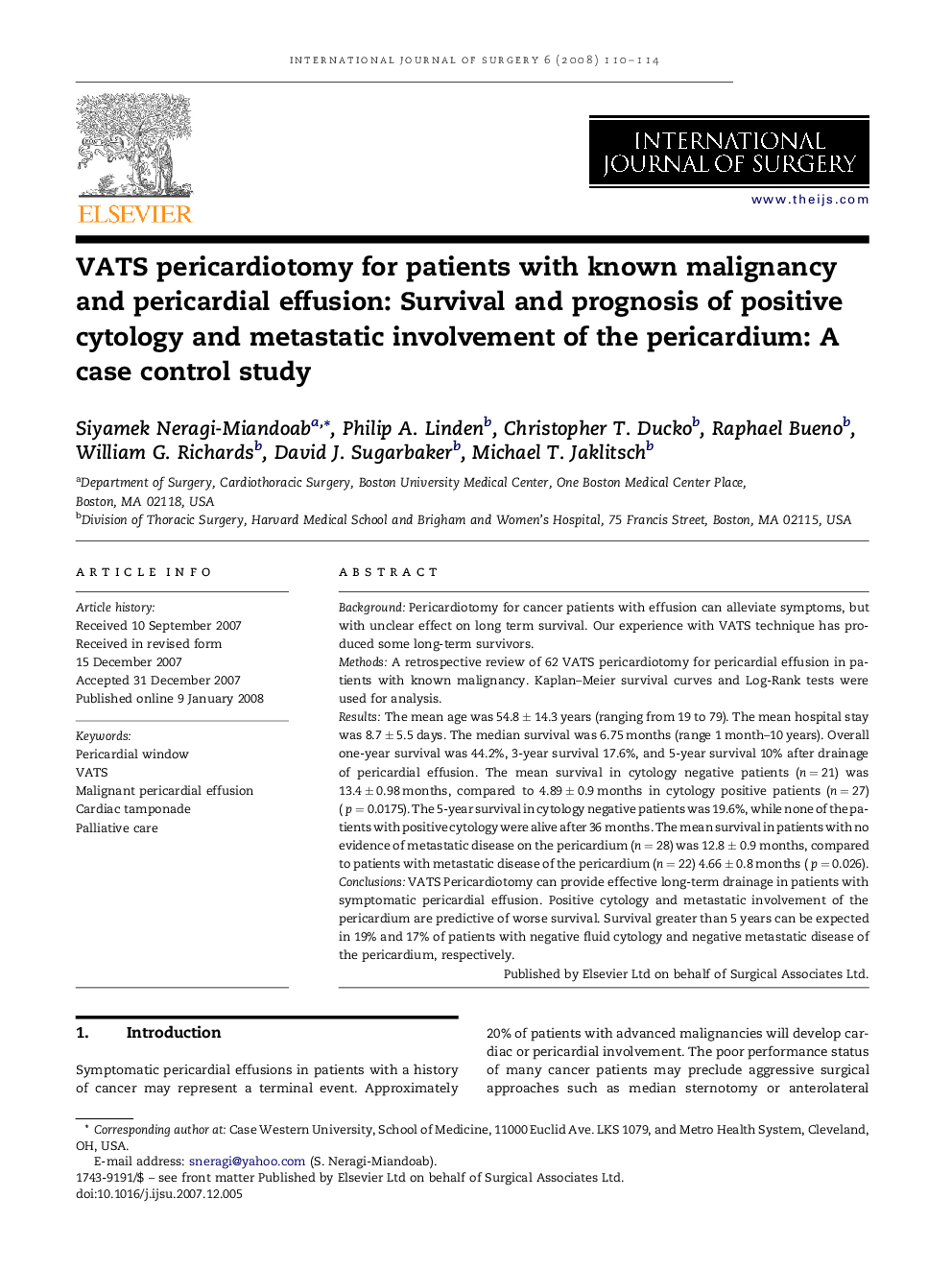| Article ID | Journal | Published Year | Pages | File Type |
|---|---|---|---|---|
| 4287926 | International Journal of Surgery | 2008 | 5 Pages |
BackgroundPericardiotomy for cancer patients with effusion can alleviate symptoms, but with unclear effect on long term survival. Our experience with VATS technique has produced some long-term survivors.MethodsA retrospective review of 62 VATS pericardiotomy for pericardial effusion in patients with known malignancy. Kaplan–Meier survival curves and Log-Rank tests were used for analysis.ResultsThe mean age was 54.8 ± 14.3 years (ranging from 19 to 79). The mean hospital stay was 8.7 ± 5.5 days. The median survival was 6.75 months (range 1 month–10 years). Overall one-year survival was 44.2%, 3-year survival 17.6%, and 5-year survival 10% after drainage of pericardial effusion. The mean survival in cytology negative patients (n = 21) was 13.4 ± 0.98 months, compared to 4.89 ± 0.9 months in cytology positive patients (n = 27) (p = 0.0175). The 5-year survival in cytology negative patients was 19.6%, while none of the patients with positive cytology were alive after 36 months. The mean survival in patients with no evidence of metastatic disease on the pericardium (n = 28) was 12.8 ± 0.9 months, compared to patients with metastatic disease of the pericardium (n = 22) 4.66 ± 0.8 months (p = 0.026).ConclusionsVATS Pericardiotomy can provide effective long-term drainage in patients with symptomatic pericardial effusion. Positive cytology and metastatic involvement of the pericardium are predictive of worse survival. Survival greater than 5 years can be expected in 19% and 17% of patients with negative fluid cytology and negative metastatic disease of the pericardium, respectively.
